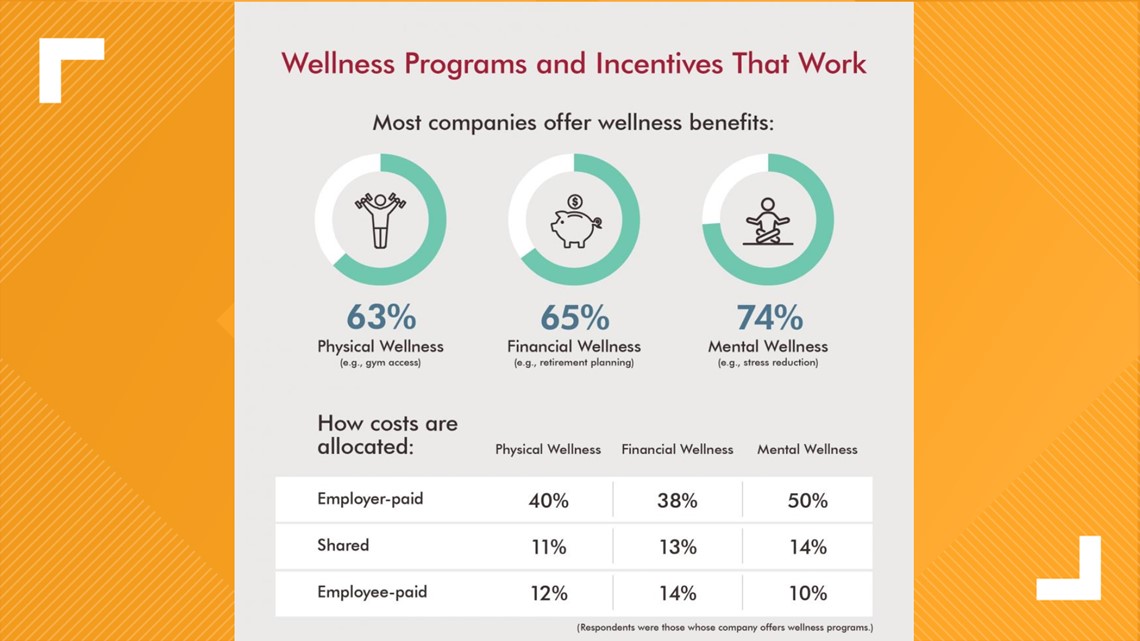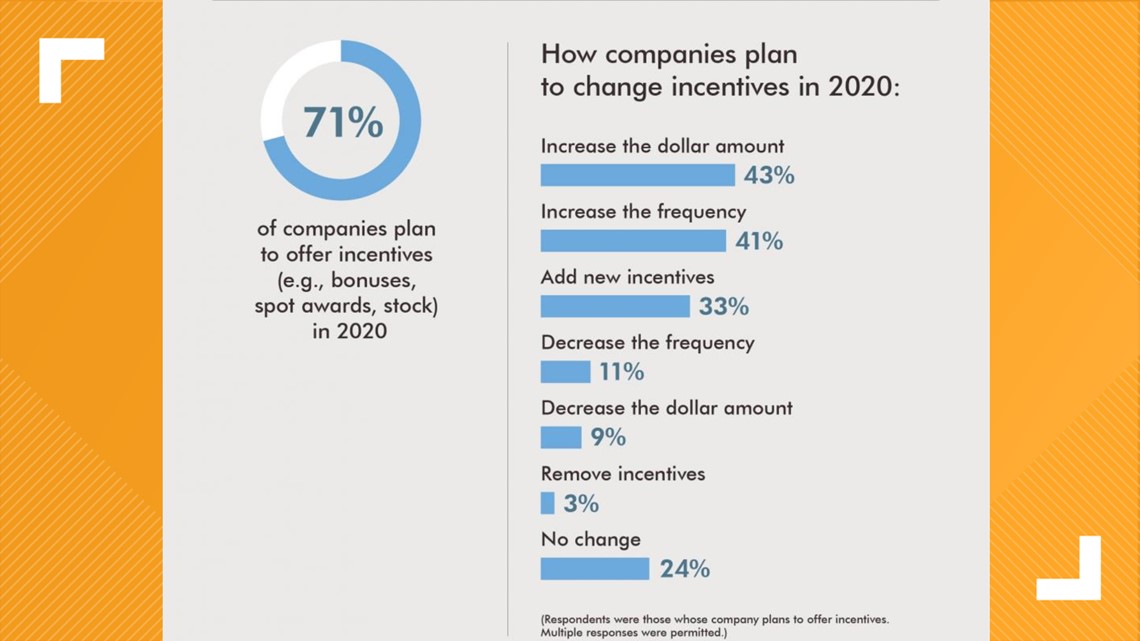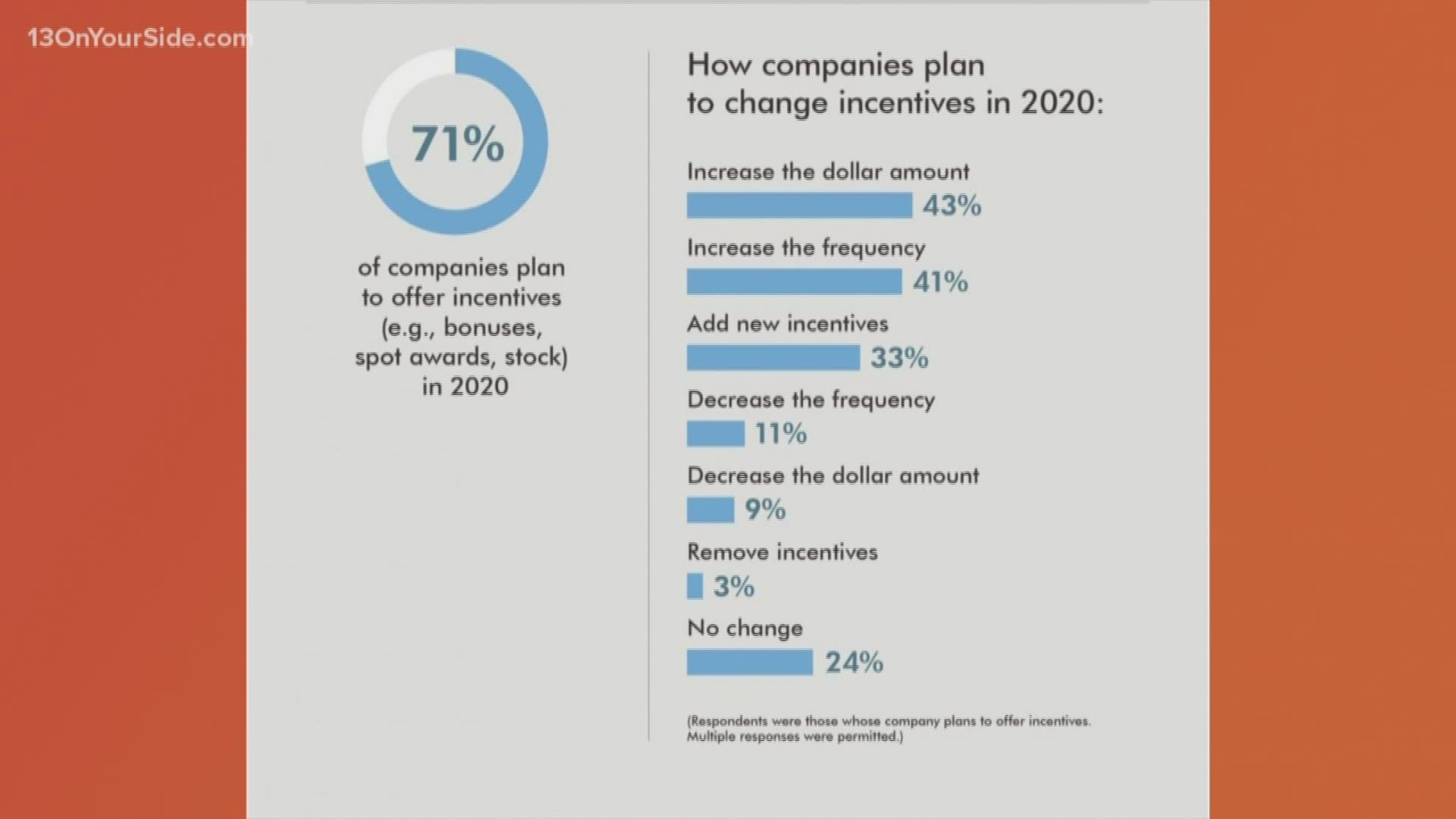GRAND RAPIDS, Mich. — Open Enrollment is often a chance to re-evaluate what you want and need from a health plan offered through your company. It is also a chance to review what other things your employer offers to help make things easier for you as an employee. Robert Half, a nationwide staffing company, recently conducted some research on what workers valued when it comes to offerings by their employers.
Fitness facilities or programs (24%), ergonomic evaluations and equipment(22%), and incentives for healthy behavior (18%) were the top answers when it comes to wellness offerings. Some of the most common perks employers offered are flexible work schedules or telecommuting options (50%), paid parental leave (47%), and employee discounts (42%).
Robert Half found that most companies offer wellness benefits (Physical: 63%, Financial: 65%, and Mental: 74%), and many companies cover at least some of the cost of wellness programs (Physical: 51%, Financial: 51%, and Mental: 64%). The research also showed that 71% of employers plan to offer incentives like bonuses, profit sharing, and spot awards in the coming year.
So why is this important? Workers are looking for more from their employer than just a health insurance option. Employees like to see that a company cares about their overall well-being rather than just the bottom line or the official rules. In a tight job market, competitive benefits, perks, and incentives can help recruit and retain talent.


So let's break it down: What are wellness programs and are there different kinds?
- Physical wellness: Gym access, on-site massages, standing desks, healthy snacks.
- Financial wellness: Student loan repayment or retirement planning sessions.
- Mental wellness: Stress reduction or employee assistance programs.
What are the differences between perks, incentives, and benefits?
- Benefits: Assistance with basic needs; noncash; not tied to performance (e.g., health insurance, retirement plan)
- Perks: Special privileges; typically noncash; sometimes tied to job performance or seniority (e.g., telecommuting, workplace wellness program)
- Incentives: Motivational rewards; usually cash; tied to job performance (e.g., bonuses, profit-sharing plan)
How can wellness benefits and incentives help with recruiting and retaining employees?
- In a candidate-driven market, extras like wellness benefits and incentives can be just as important as salary.
- Perks, incentives and benefits can be the deciding factor for professionals to join or stay with a company over another.


Beyond encouraging others to join the company or keeping current employees, why is employee wellness important?
- The overall health and happiness of staff matters. It can impact productivity and job satisfaction.
- Companies that offer these benefits send the message that they support the well-being of their workers.
- Employers are placing an emphasis on work-life balance, especially since research shows burnout is prevalent.
- While physical wellness has been on companies’ radars for years, financial and mental wellness offerings have garnered more recent attention because workers appreciate resources that help them manage stress (in and out of the office) and their money (e.g., student loans, planning for the future).
How should employees and job seekers approach negotiating perks, incentives, and benefits?
- Employees and job seekers should research trends in perks, benefits and incentives packages before starting the conversation with an employer. Resources like the Robert Half 2020 Salary Guides include this information.
- Prioritize which offerings matter most to you.
- Time it correctly. Asking for monetary incentives when the company had a bad quarter would not bode well.
- Be realistic about what they are asking for. Don’t be overly demanding.
- If base pay cannot budge, ask about perks, incentives and benefits. Employers sometimes have more flexibility in these areas over salary.
So, what about open enrollment?
- Know your needs, understand costs and find out what’s covered. Many organizations will provide educational sessions to explain different options available.
- Consider any major life changes you have planned (e.g., new baby, getting married).
If your employer doesn't offer some of the perks, incentives, or benefits you would like, you can always propose starting to implement them. There may be opportunities to suggest it in one-on-one meetings, group discussions, employee surveys, or a suggestion box.
More from 13 ON YOUR SIDE:
RELATED VIDEO:
►Make it easy to keep up to date with more stories like this. Download the 13 ON YOUR SIDE app now.
Have a news tip? Email news@13onyourside.com, visit our Facebook page or Twitter.


